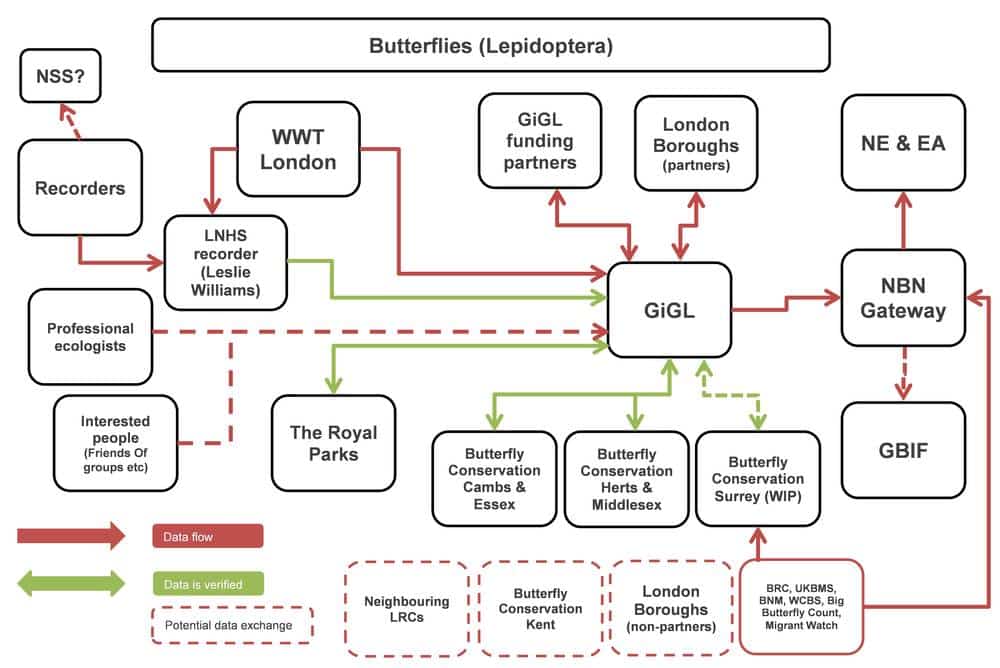Maria Longley
Information is a valuable asset. Its value is fundamental to our role as London’s environmental data custodians and is one of the core principles that drive our data management strategies and policies. We strive to be a good quality source of open space and biodiversity data that can be used as an evidence base for decision making.
GiGL do not own most of the data we manage so having the trust of the people who do is very important to us. People need to trust we will manage data as we have agreed or the flow of data in London will dry up very quickly. We want individuals and communities to be able to make decisions about how, where, why and for how long their data is used. To this end, we have an advisory group made up of representative members of GiGL data users and providers who help us to fairly navigate the different requirements of individuals and communities.

The UK Environmental Observation Framework has published an advice note on ‘The principles of good data and information management’ which has a good summary of some of the major concerns. One of our oft-quoted mantras is that data should be “collected once and used many times”. Holding data that is fit for purpose ties in with this aim.
Adhering to agreed standards has shaped our work, from what metadata we store to engaging with legislation like INSPIRE. Although each local records centre in the UK covers a distinct geographic area, we still need to engage with wider agendas. For example, at a recent South East Local Records Centres meeting we talked about such issues as open data, local records centres, and the role of DCLG in our collective work. GiGL is involved in national and international discussions about standards; for example, with the National Biodiversity Network and Global Biodiversity Information Facility on natural environment data management through our membership of ALERC (Association of Local Environmental Records Centres) .
One of the many joys of this job is the variety of questions we can answer and the number of projects for which the data we hold can be used. We can’t possibly know how the data will be used next but we can make sure that it is ready and waiting for the next exciting project.
Maria Longley is one of GiGL’s Records Officers. She is undoubtedly GiGL’s metadata and open data expert; an interest which goes beyond biological records and involves close liaison and discussion with counterparts in other local records centres. She is a key member of the ALERC data flow working group.
